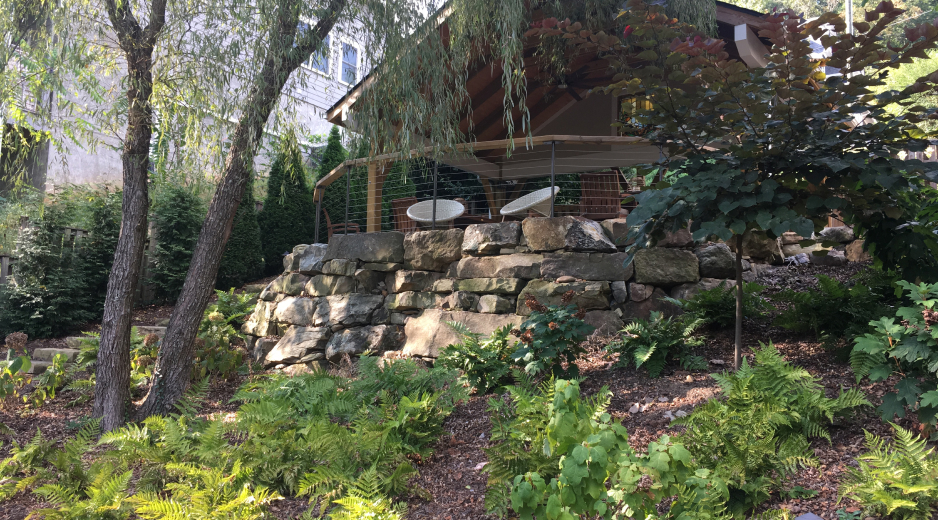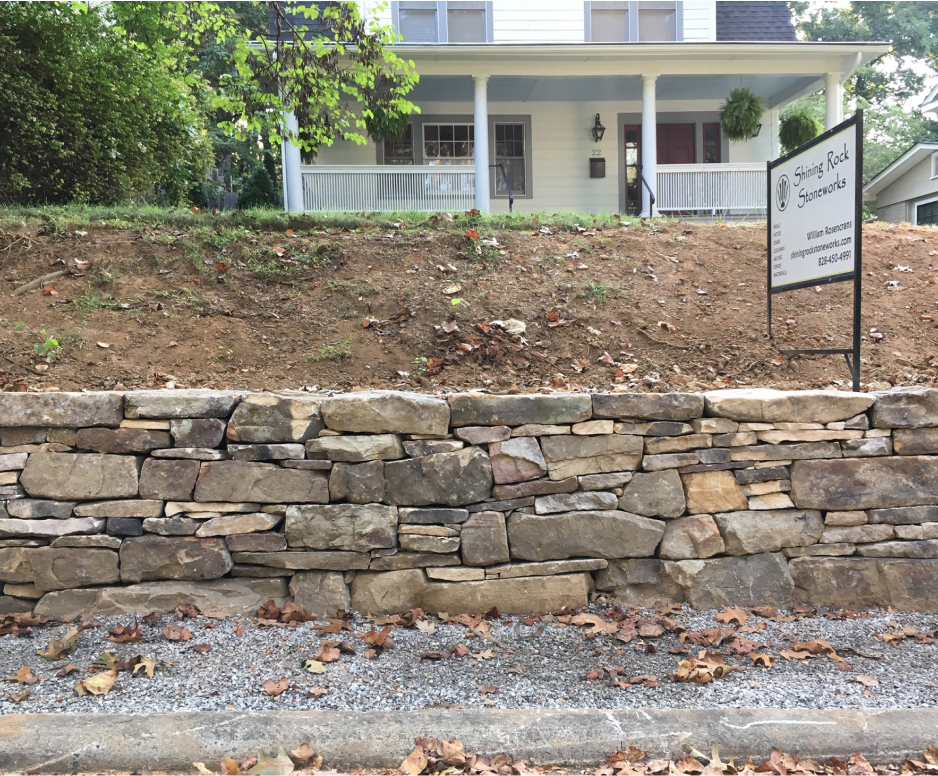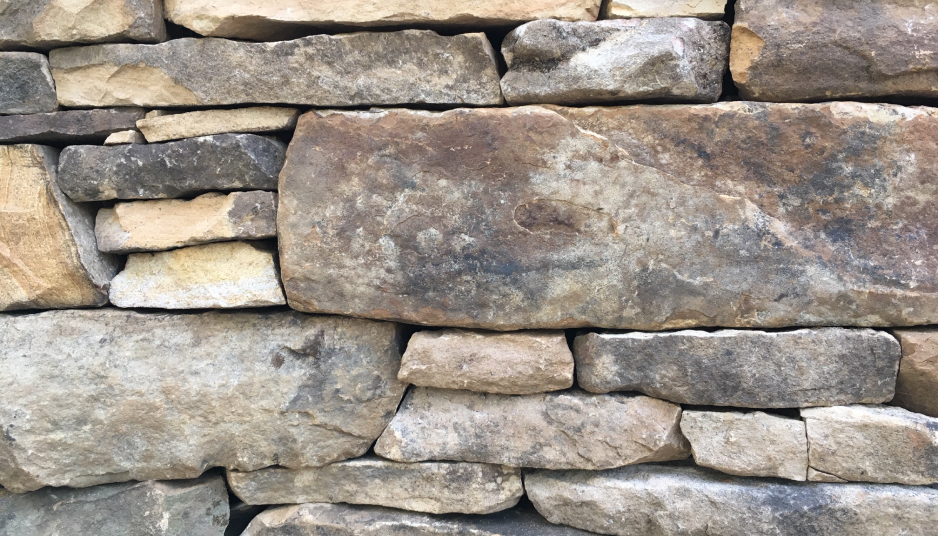Walls
We Build Retaining Walls In And Around Asheville
At Shining Rock Stoneworks, we take pride in our retaining wall construction and repair work. Our retaining walls are a testament to techniques that have withstood the test of time for millennia. We’re also lucky to live in the modern era, with everything from carbide hand tools, which cut through stone with only a few strokes, to excavators and skid steers.
Using locally sourced stone, we chisel each piece until the faces meet smoothly. Our dry-stacked walls use maximum face-to-face contact. Mortared work features consistent joints or a dry-stacked look.
To ensure superior drainage and flexibility against frost heave, our walls are supported from behind by heartstone. This element, which constitutes a secondary wall of its own, enhances the longevity and resilience of the structure, allowing it to endure for generations.
Given sufficient shade and moisture, moss can be encouraged to grow on the stones. Full sun allows trailing plants, flowers, or shrubs trail across the top.

Dry-stacked boulder retainer wall, Thurland Avenue, Asheville
In excavating for this wall, we uncovered a piece of neighborhood history—layers of ash, dumped by surrounding households, from an era when every home relied on wood or coal for heating. We dug until we reached solid ground, then used boulders weighing as much as a ton to construct the wall.
Dry-laid fieldstone retaining wall, Montford, Asheville
This retaining wall, like all of our walls, is built on compact clay-rich soil and backed with tightly laid heartstone, with gravel behind that. No plastic landscape fabric is required behind such a wall to assist with drainage or to prevent soil from leaking through; it will stand as long as the centuries-old walls we have studied.

Fieldstone Wall and Bridge Stonework
Mortared fieldstone wall, Woodfin
This culvert, the conduit for a small Woodfin creek, required very careful forming for a concrete pour. Once the concrete was in place we attached Simpson ties at every course of stone for maximum structural integrity.
Properly built, a stone wall can retain a slope with erosion issues, create user-friendly spaces, and convey a sense of both tranquility and stability.
Dry-stacked fieldstone wall detail, Montford
We were able to use smaller stones for this short wall, but even those stones with small faces extend back deeply to help anchor the retainer wall and prevent movement; vertical joints are “broken” by the stones in the next course for further longevity. All joints are tight, with maximum contact between sides, tops, and bottoms along the entirety of each stone.

